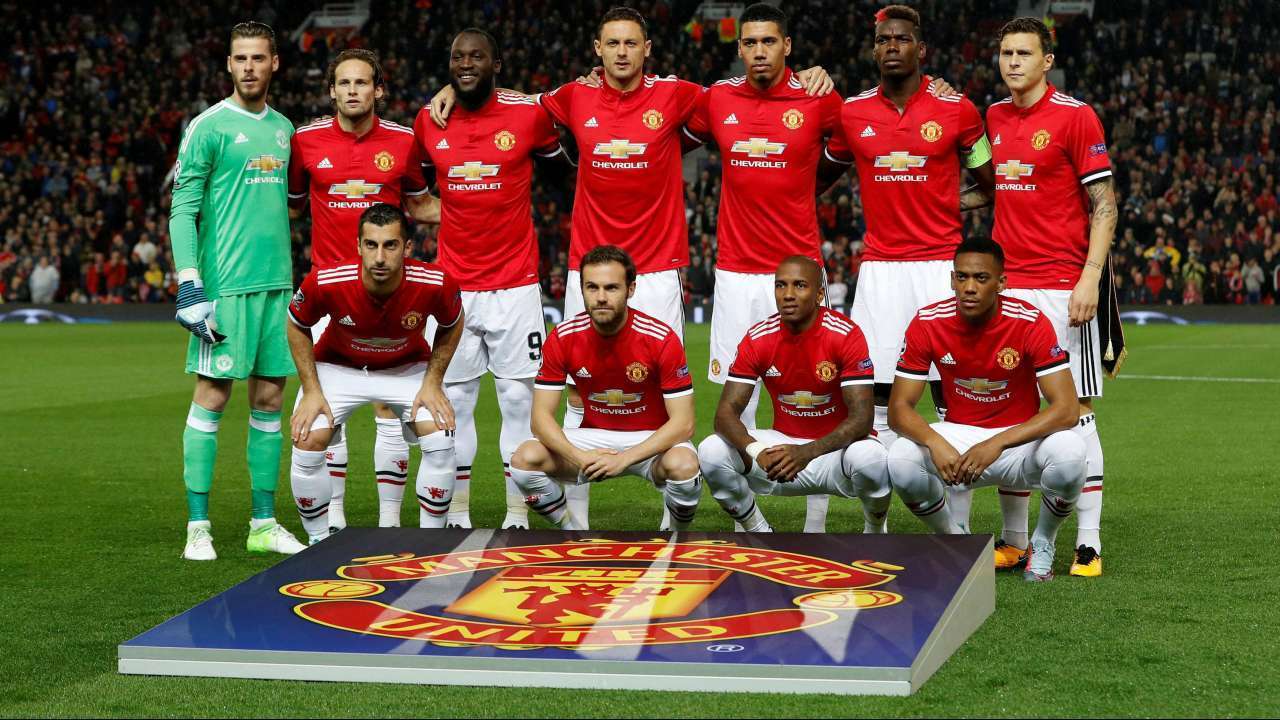Manchester United Kingdom Time: Understanding the intricacies of time in Manchester reveals much more than just clock adjustments. It’s a story woven into the fabric of the city’s global connections, its vital services, and its rich cultural tapestry. From the impact of British Summer Time (BST) and Greenwich Mean Time (GMT) on daily life to the challenges and opportunities presented by international collaborations, Manchester’s relationship with time is a fascinating study in global interconnectedness.
This exploration delves into the practical implications of time zones for businesses, emergency services, and everyday residents. We examine how cultural perceptions of time shape social interactions and consider the crucial role of accurate timekeeping in maintaining the efficient functioning of Manchester’s essential services. Through hypothetical scenarios and visual descriptions, we aim to illuminate the multifaceted nature of time within this vibrant UK city.
Understanding Manchester United Kingdom Time
Manchester, a vibrant city in North West England, observes the same time zone as the rest of the United Kingdom. Understanding this time zone is crucial for anyone interacting with the city, whether for business, travel, or personal reasons. This section will clarify the geographical context of Manchester’s time, the significance of time zones, and the specifics of British Summer Time (BST) and Greenwich Mean Time (GMT).
Manchester’s Geographical Context and Time Zones
Located in the north-west of England, Manchester is situated within the British Isles and falls under the same time zone as the rest of the UK. The UK’s time is primarily determined by its geographical location and its adherence to Greenwich Mean Time (GMT) as a base time, with the seasonal adjustment of British Summer Time (BST).
British Summer Time (BST) and Greenwich Mean Time (GMT)
Greenwich Mean Time (GMT) is the standard time for the United Kingdom during the winter months. It is based on the Prime Meridian, which runs through Greenwich, London. British Summer Time (BST), also known as Summer Time, is observed during the summer months to make better use of daylight hours. This involves advancing the clocks by one hour.
Comparison of BST and GMT
| Time Zone | Abbreviation | Start Date | End Date |
|---|---|---|---|
| Greenwich Mean Time | GMT | Last Sunday in October | Last Sunday in March |
| British Summer Time | BST | Last Sunday in March | Last Sunday in October |
Manchester’s Time and Global Events
Manchester’s adherence to BST and GMT significantly impacts its interactions with the global community. This section explores the implications of time differences for international events, global businesses, and everyday communication.
Scheduling International Events and Meetings
Scheduling international events and meetings involving Manchester requires careful consideration of time differences. A meeting scheduled for 10:00 AM in Manchester might be 9:00 AM in Dublin, 5:00 AM in New York, and 2:00 AM in Los Angeles. Organizers must select times accommodating participants across various time zones, often resulting in compromises.
Implications for Globally Operating Businesses, Manchester united kingdom time
Manchester-based businesses with global operations must navigate these time differences daily. This includes managing communication, coordinating projects, and adhering to international deadlines. Effective time management tools and communication strategies are essential for efficient operations.
Impact on Communication and Collaboration
Time zone differences can impact communication and collaboration among Manchester residents interacting with individuals or businesses in other parts of the world. Delayed responses, scheduling difficulties, and missed deadlines are common challenges. The use of asynchronous communication tools, such as email, can mitigate these issues to some extent.
Hypothetical Scheduling Conflict
Imagine a Manchester-based tech company needs to hold a virtual meeting with a client in Tokyo. The meeting, crucial for a project deadline, is scheduled for 3:00 PM in Manchester (BST). This translates to 11:00 PM in Tokyo, making it inconvenient for the Japanese client. This necessitates rescheduling or considering alternative communication methods.
Time-Related Services in Manchester
Many services in Manchester are highly time-sensitive, relying on accurate and efficient timekeeping. This section examines several key services and their dependence on precise time information.
Time-Sensitive Services and Their Use of Time Information
- Transportation: Train schedules, bus routes, and airport operations rely heavily on precise timekeeping. Delays can have significant ripple effects.
- Emergency Services: Ambulance dispatch, fire response, and police operations require immediate and accurate time information for efficient resource allocation.
- Financial Services: Stock markets, banking transactions, and financial reporting are time-critical activities.
- Healthcare: Appointments, surgeries, and medication schedules are meticulously timed.
Comparison of Timekeeping Methods
Different services in Manchester utilize various timekeeping methods. While most rely on synchronized digital clocks and systems, some might use backup systems or manual methods. The accuracy and reliability of these methods vary, with emergency services typically prioritizing highly reliable, redundant systems.
Importance of Accurate Timekeeping
Accurate timekeeping is fundamental to the smooth and efficient functioning of all these services. Even minor discrepancies can lead to delays, inefficiencies, and potentially, serious consequences in emergency situations.
Cultural Aspects of Time in Manchester
Time perception and usage vary across different cultural groups within Manchester, influencing social interactions and shaping the city’s cultural identity. This section explores these diverse perspectives.
Cultural Differences in Time Perception
Manchester’s diverse population includes individuals from various cultural backgrounds, each with unique perspectives on time. Some cultures might prioritize punctuality strictly, while others might have a more flexible approach to time. Understanding these differences is crucial for effective communication and collaboration.
Time’s Influence on Social Interactions
Time influences social activities and interactions in Manchester. The pace of life, the scheduling of events, and even the nature of social gatherings can be affected by cultural norms and time perceptions. For example, a formal business meeting might adhere to a strict schedule, while a casual social gathering might be more relaxed.
Time and Manchester’s Cultural Identity

The city’s industrial past, its current role as a hub for arts and culture, and its diverse population have all shaped its relationship with time. The blend of traditional and modern perspectives on time contributes to Manchester’s unique cultural identity.
Narrative Illustrating a Cultural Aspect
Aisha, a recent immigrant from a culture with a more flexible approach to time, initially struggled to adapt to the strict punctuality expected in many aspects of Manchester life. However, through interactions with her colleagues and friends, she learned to appreciate the value placed on time efficiency in the city, eventually integrating both perspectives into her own time management.
Visual Representation of Manchester Time
Visual representations can effectively communicate the complexities of Manchester’s relationship with time within the global context. This section describes hypothetical visual aids that could clarify this relationship.
Visual Representation of Manchester, UK, and Global Time Zones
Imagine a world map, centered on Manchester. Manchester is highlighted with a bright red circle. Lines radiating outwards represent time zones, each labeled with the corresponding time difference from GMT. The colors of the lines could gradually change, moving from warm colors (reds and oranges) for time zones ahead of GMT to cool colors (blues and greens) for time zones behind GMT.
The map could also show major cities within each time zone, further illustrating the global time differences.
Check what professionals state about manchester united f.c. vs nottingham forest and its benefits for the industry.
Hypothetical Infographic of a Manchester Resident’s Daily Schedule
A hypothetical infographic could depict a typical day for a Manchester resident. A horizontal bar chart could illustrate the allocation of time throughout the day, with different segments representing work, commuting, leisure activities, meals, and sleep. Each segment would be labeled with the specific time and a short description. The infographic could use different colors to represent different activities, making it visually appealing and easy to understand.
Educational Use of Visual Representations
These visual representations could be used to educate people about Manchester time and its global context. The map could clarify the relationship between Manchester, the UK, and other time zones worldwide. The infographic could demonstrate the practical implications of time management in daily life within the city.
Ultimately, Manchester’s experience with time highlights the complex interplay between geographical location, global commerce, and cultural norms. The city’s efficient functioning relies heavily on precise timekeeping, while its international connections necessitate a deep understanding of global time zones. Understanding Manchester United Kingdom Time provides a valuable lens through which to appreciate the intricacies of daily life in a major global city and the subtle yet significant ways time shapes our world.


